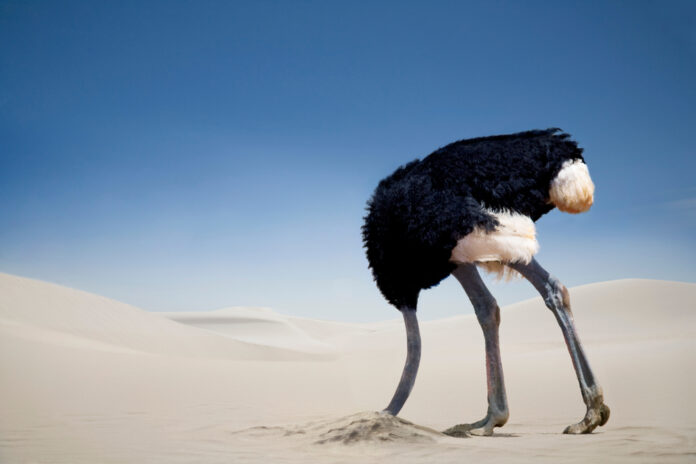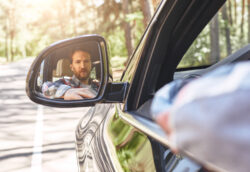In Medicine, when people are struggling, especially when it comes to colleagues and peers, there seems to be a willful blindness to the fact that something is wrong, and that someone is having trouble and needs help and support.
When I was a young doctor, I drank very heavily. I cultivated my drinking habit in my teens and at Uni, but it grew into an out-of-control weed when I started working, as I found the stresses and strains of the job very difficult to bear.
It was an accepted part of the medical culture then, and to some extent still is, even though the evidence is clear that there is no safe level of drinking alcohol.
We worked hard and partied hard in those days, but no-one ever questioned my behaviour, at least to my face, as the people I hung out with were largely behaving in the same way.
The only person who ever said anything was a demented old patient who, as I bent over one morning to listen to her chest, croaked: Have you been drinking?!
I have always had a very strong work ethic, a robust constitution and an indomitable will, so I never missed a day of work until the very end of my drinking days, when I was so (self-induced) sick and yet so unable to stop drinking, that I literally could not leave the house.
I could tell some stories, but that is not the point.
The point is: why the willful blindness?
Surely my colleagues could tell that something was amiss? Sure, I never drank before or during work. Sure, I was very particular with my personal hygiene, washed my hair every day, my body at least twice a day and cleaned my teeth all the time, for I was very conscious of the smell of smoke and the bad taste in my mouth after drink and hated both (!), and sure, I scrubbed up surprisingly well, but I must still have looked and acted tired and hungover to the point where an astute clinical eye could see it.
And there were astute clinical eyes everywhere, seeing as I was working in a large public hospital, so why did no-one say or do anything?
I am not saying it was someone else’s responsibility to notice that something was wrong, to help me, or anything like that. I am just curious about the consciousness of the medical profession that trains us to be astute to every tiny detail of illness and disease in our patients, whilst studiously ignoring it in each other, and ourselves.
Willful blindness. Selective senses.
This was many years ago. These days, there is much more focus on health and wellbeing. We are taught to ask: RUOK? There are health and wellbeing days and token activities where you can eat pizza and drink beer (because they are so healthy!), or play contact sports (also great for us) and talk about health and wellbeing.
But are we actually walking our talk?
Are we living in a way that makes our health and wellbeing a priority?
Are we caring for ourselves, tending to our own needs, before we presume to give other people advice on how to care for themselves?
And if we can no longer care for ourselves, because we are so far gone down the path of addiction and or ill physical or mental health, what are we collectively doing to support ourselves and each other?
Are we still arrogantly assuming that we as doctors are somehow special and different and assigned with superpowers that mean we don’t require food, water, rest, sleep and play in the same way that mere mortals do?
Or have we been humbled by life enough to know that we are delicate, sensitive, vulnerable beings, deserving of tender loving care, just as much as everyone else.
It is not enough to pay lip service to ‘RUOK?’ Even if you ask the question, people are just going to say yes. It is like when your kid comes home from school and you ask: How was your day? And they always say: Good.
Asking the question and leaving it at that is not enough.
We are trained observers, and we need to observe people all the time.
Our movements say much more about us than words ever will. We sense more than we can say. If we feel something is not right, we are probably right. And it is important to honour those feelings and not be brushed off by words of false reassurance.
This is not just about alcohol, for there are many ways in which we can struggle and many coping mechanisms we adopt that actually make things worse and can then become a problem in and of themselves.
We cannot help people if they don’t want to be helped, but we can at the very least show them that we notice them and that we care, and offer them a safe space to talk about what is actually going on for them, and whether they are enjoying life, or not.
We are all precious, and we are all in this together. We cannot do life alone. We have to look out for each other, and support each other when needed. Medicine is a taxing profession. It asks a lot from us and sometimes we don’t feel equipped to deal with it. Life can be challenging and there can be speed bumps along the way.
There is nothing that cannot be dealt with, when faced together. But we need to open our eyes and hearts to each other and truly see how we are, and what is going on. We need to see what is there to be seen, to be willing to ask the questions that need to be asked, and to say what needs to be said.










So true Anne. Ditto in my nursing days. Work hard party hard. Certain London hospitals got a reputation for their ‘nurses’ behaviours. Willful blindness certainly true back then 60s and 70s. I can’t speak for now.
Yes, Sue, back in our day the nurses trained in hospital, not at uni, so we all learned on the job together and played together too! I guess if we are all in it together, our behaviour becomes normalised, so there is literally nothing to see here and very abnormal behaviour flies under the radar.
The normality of partying as a health professional certainly assists with the wilful blindness. Nothing to see if it’s the expected norm. Being around sick people gives us an excuse too. In comparison we are better off than those laying in bed because we can work and function, but is that really all we want from life?
So true, Fiona. We are surrounded by sick people, so in comparison, we are so much better off. But who wants to live in comparison, settling for mere function, when there is so much more to enjoy in life?
I love this line from your article Anne – “We cannot help people if they don’t want to be helped, but we can at the very least show them that we notice them and that we care” Working in the health industry for 20 plus years that is one of the main things that impacts on us – thinking no one cares … the truth is most people do care, we have been conditioned to not show it or express it. Crazy we need an RUOK day when it is natural and instinctive to care -just watch children and you can see that is true.
This line from you article sums it up perfectly.
“There is nothing that cannot be dealt with, when faced together. But we need to open our eyes and hearts to each other and truly see how we are, and what is going on. We need to see what is there to be seen, to be willing to ask the questions that need to be asked, and to say what needs to be said.”
Change can only occur if we make a change.